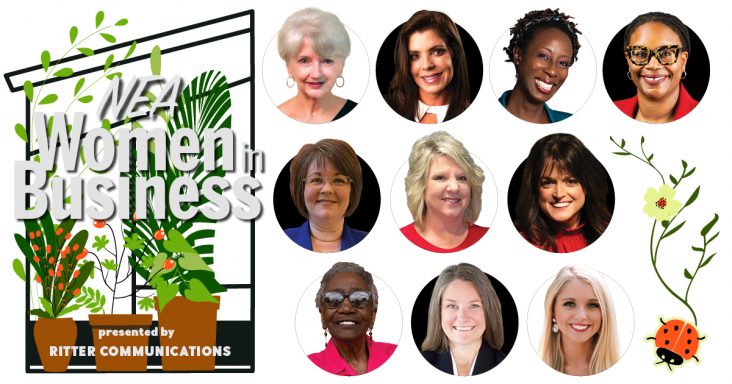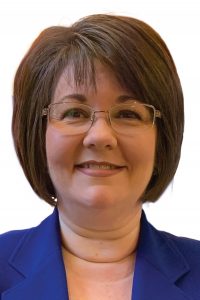2021 NEA Women in Business: Christie Jordan
by August 31, 2021 11:41 am 539 views


CEO
Food Bank of Northeast Arkansas
Residence: Jonesboro
Education: Bachelor’s degree in journalism with an emphasis in public relations and minor in English (1995), Arkansas State University
What has been the most fulfilling moment of your career so far? In November 2012 the Food Bank moved into our new distribution facility. We moved from a 13,000 square-foot building to a 56,000 square-foot distribution center that was specifically designed for our work. Achieving that goal was years in the making! The Donald W. Reynolds Foundation gave the Food Bank of Northeast Arkansas a grant to pay for 100% of the cost to design, build, furnish, and equip the facility. Local donors gave generously to help our organization raise the $1.6 million in matching funds that were required to receive the grant. The matching funds were used to start a program endowment for the Food Bank, and the Reynolds Foundation gave an additional matching gift to start a maintenance endowment to support the long-term care and maintenance of the new building.
What character traits do you feel have benefited you in your success? Curiosity and tenacity.
How do you spend your time away from work? What are your hobbies? Admittedly, I struggle finding a healthy work/life balance. But I enjoy baking and reading. I love to have a free day to spend in the kitchen while listening to an audiobook.
Of all the mentors in your professional career, who has been the most influential and why? I have had several important mentors in my professional career, but the most influential has been Gene Wing. Gene was part of the committee that hired me at the Food Bank nearly 24 years ago. While I had fundraising and nonprofit experience, I lacked business experience. Ironically, I don’t recall taking a single business class in college; that was a serious oversight in my higher education. Gene taught me a lot about accounting, payroll, and budgeting. He helped me hone the skills that I would need to successfully lead the Food Bank.
What’s your biggest passion and why? I feel passionate about people investing their time and talents into the community to make it a better place. I think it is important to seek opportunities to be involved in the community outside of normal work activities — church, civic clubs, volunteer opportunities, young professional network, chambers of commerce — to make a positive impact on the community in which we live and work. But our responsibility doesn’t end there. We need to mentor others to teach servant leadership to the next generation so the work continues.
What is something distinctive that people would be surprised to know about you? My entire professional career has been spent in the nonprofit sector.
Can you share what you have learned about your business from the COVID-19 pandemic? The pandemic brought to light how incredibly fragile the U.S. supply chain is. Because the Food Bank of Northeast Arkansas depends on food donations, the pandemic had a significant impact on the sources of our donated food. Also, the Food Bank of Northeast Arkansas depends on thousands of volunteers each year to pack food boxes and sort food donations. In 2020, we made the difficult decision to suspend volunteer activities and hired a few temporary employees to pack food boxes and sort donations. This increased our operating budget by more than $90,000. Our donors never cease to amaze me. We received enough grants and individual gifts to cover the increases in operational costs due to COVID-19.
What advice would you give young women who are at the beginning of their careers? Be intentional in seeking mentors in your personal and professional life and always look for opportunities to expand your knowledge and skill sets.
Editor’s note: Profiles for this year’s NEA Women in Business class were compiled and written by George Jared and Paul Holmes.
